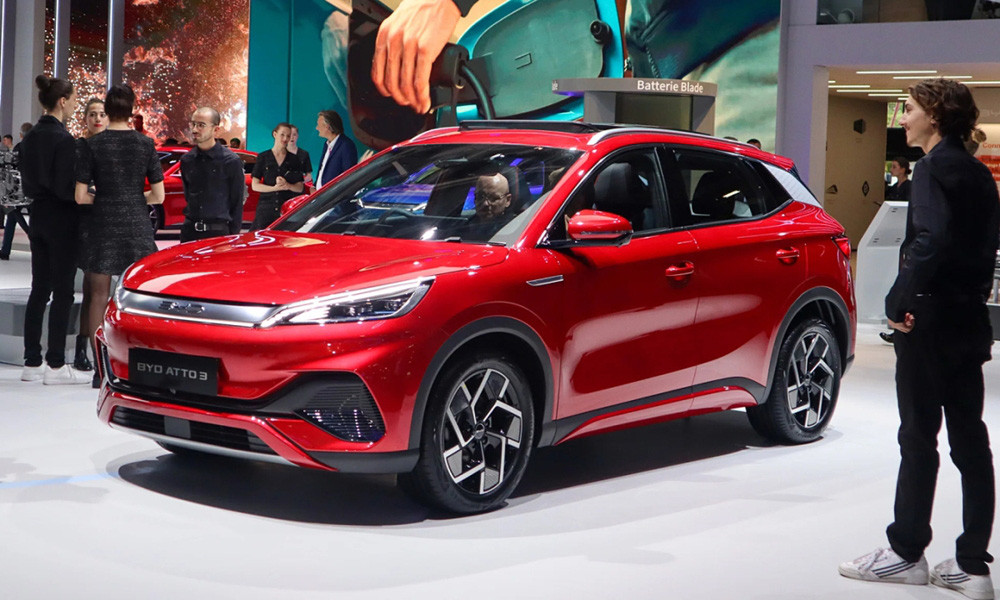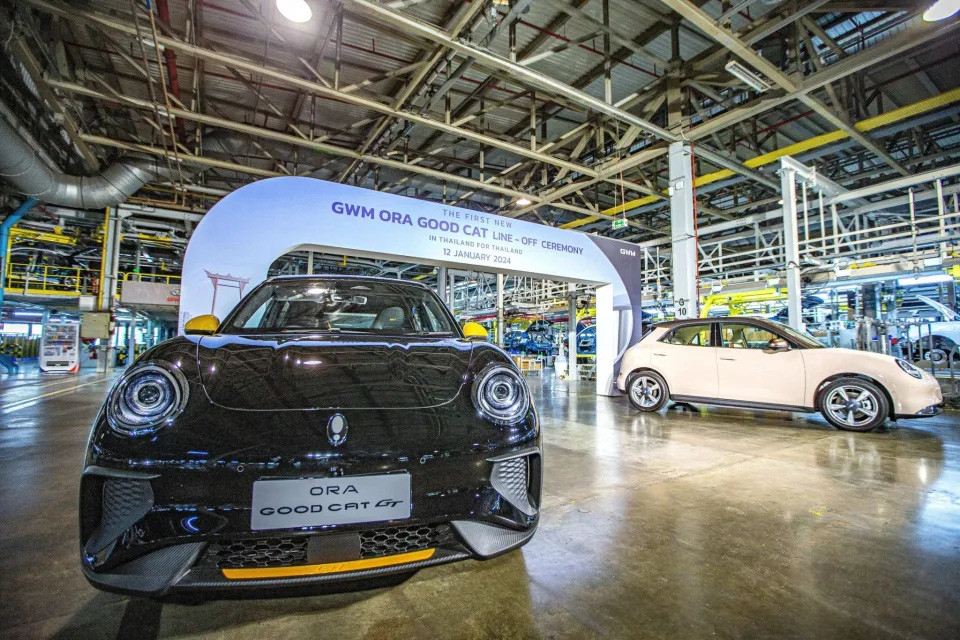Chinese cars such as BYD and Hozon Auto are gaining significant market share in Thailand, challenging the dominance of Japanese cars such as Toyota and Honda.

Atto 3 is expected to be BYD's first electric car to come to Vietnam.
Japanese cars have long dominated the Thai auto market in both production and sales. The Southeast Asian country is the region’s largest auto manufacturer and exporter, earning it the nickname “Detroit of Asia.”
But now, Chinese electric vehicle manufacturers are penetrating the Thai auto market in particular and Southeast Asian countries in general. The expansion of Chinese cars is most evident in Thailand, challenging traditional manufacturers.
Thailand’s rapidly growing electric vehicle market is attracting significant investment from Chinese automakers, with BYD being the most prominent player. The company plans to triple its dealerships in Thailand over the next two years.
BYD sold 30,432 vehicles, holding nearly 4% of the Thai auto market share. With this figure, BYD is far behind Toyota, which ranked first with 265,949 vehicles. However, in sixth place, BYD is only 2,000 vehicles behind Mitsubishi, which ranked fifth.

BYD-branded cars outsell Nissan and Mazda in Thailand
When it comes to electric vehicles specifically, BYD is leading the way. According to data fromAutolife ThailandIn 2023, Thailand will register 76,314 electric vehicles, nearly 7 times more than in 2022. Of which, BYD accounts for about 40%, Neta (Hozon's electric vehicle brand) and MG (currently owned by China) are in second and third place respectively.
In total, Chinese cars hold 7.4% of the car market and 80% of the electric car market in Thailand. Meanwhile, Japanese cars account for less than 1% of electric car sales.
Thailand is not the only country witnessing this growth. Research by the Indonesian Automotive Industry Association (GAIKINDO) shows that about 66% of consumers have a positive view of Chinese cars.
GAIKINDO data shows that total electric vehicle sales in Indonesia in 2023 reached 17,062 units, up 65.2% compared to 2022. Wuling Air EV was the second best-selling electric vehicle with sales of 5,575 units, after Hyundai Ioniq 5 with 7,176 units.
According to data from the Malaysian Automotive Association (MAA), BYD sold 3,728 electric vehicles in 2023, surpassing BMW which sold 3,600 electric vehicles in the same period.
The gap between Chinese electric vehicles and other brands could widen rapidly as brands from the country of a billion people penetrate the regional auto manufacturing sector.
In Thailand, in January 2024, Great Wall Motor announced that it was the first Chinese automaker to start producing electric vehicles there, starting battery production in March. BYD broke ground on its first car factory in Thailand in March 2023, expected to be operational this year, with a capacity of about 150,000 vehicles/year.
In Malaysia, BYD plans to open up to 40 showrooms. Geely plans to partner with Proton, investing $10 billion, including building a manufacturing center in the country. In Indonesia, BYD announced it would invest $1.3 billion in an electric vehicle factory.
Bloomberg and Reuters reported that Chinese electric car maker BYD is planning to produce electric cars in Vietnam. BYD Chairman Wang Chuanfu himself expressed hope that Vietnam will create “favorable conditions” for the company to complete investment procedures and quickly start producing electric cars.
Krisda Utamote, president of the Thai Electric Vehicle Association, told Bloomberg that demand for electric vehicles in Thailand could double this year. He forecast that electric vehicle registrations could surpass 150,000 units, or 20% of the overall auto market.
Government subsidies have contributed to this demand. Thailand is aiming for electric vehicles to account for at least 30% of its total car production by 2030. To that end, the Thai government launched a new incentive package in November 2023, offering incentives of up to 50,000-100,000 baht per electric car, which will last until 2027. The previous incentive package offered incentives of up to 150,000 baht per car.
HA (according to Tuoi Tre)